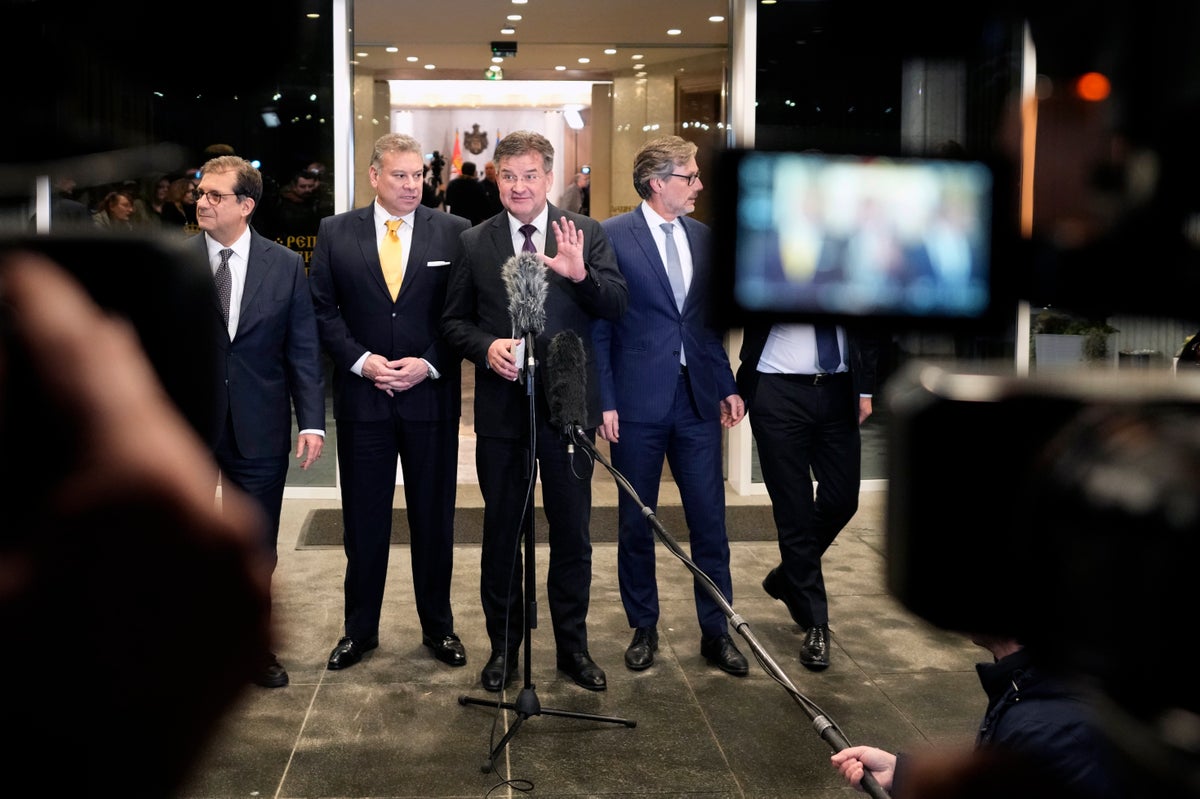
Western envoys on Friday visited Kosovo and Serbia as part of their ongoing efforts to defuse tensions and help secure a reconciliation agreement between the two former war foes.
Envoys from the United States, the European Union, France, Germany and Italy first met with Prime Minister Albin Kurti in Kosovo. They later met in Belgrade with President Aleksandar Vucic to discuss possible next steps toward normalizing relations between Serbia and Kosovo.
Kosovo declared independence from Serbia in 2008. Serbia, with support from allies Russia and China, has refused to recognize Kosovo’s statehood, which is accepted by the U.S. and much of the West. The dispute remains a source of instability in the Balkans amid Moscow's full-scale invasion of Ukraine.
After more than two hours of “long, ... not easy, but ... very honest, very open” talks with Kurti, EU envoy Miroslav Lajcak said it was too soon to announce any dramatic developments on a proposal presented to Pristina and Belgrade last year.
“We had expected better understanding of the opportunities this proposal offers," said Lajcak, a former foreign minister of Slovakia. "I hope we will get there, to full understanding and full use of the potential of this proposal.”
The EU has spent more than a decade mediating dialogue between Pristina and Belgrade. No details of the latest proposal have been made public.
“We are in the middle of our mission, and we continue to Belgrade,” Lajcak said.
After talks later with Vucic, Lajcak described the proposal as "the best way for the normalization of relations between Serbia and Kosovo and for European integration of the region.”
Vucic, Lajcak added, “demonstrated a responsible approach and willingness to take difficult decisions in the interest of peace and European perspective for Serbia.”
“We feel encouraged," he said. “Our work will continue without delay.”
Vucic said in a separate statement that he would hold further consultations within Serbia in the coming days, and "that we are ready to accept the concept and work on the implementation of the proposed agreement," though one part remains disputable.
“We agreed that frozen conflict is not a solution, because when you have a frozen conflict, it is only a question of time when someone will unfreeze it," Vucic said.
Last month, the Western powers participated in resolving a tense situation in northern Kosovo, where Serbs erected barricades on the main roads to protest the arrest of a former Serb police officer.
The situation in the north remains volatile. Only a few dozen police officers of the EU rule of law mission, known as EULEX, are taking care of the area’s security after all ethnic Serb representatives resigned from their posts in November.
Serbia’s bloody crackdown against Kosovo Albanian separatists in 1999 ended with a 78-day NATO bombing campaign, which also pushed Serbian troops, police and paramilitary forces out of Kosovo.







